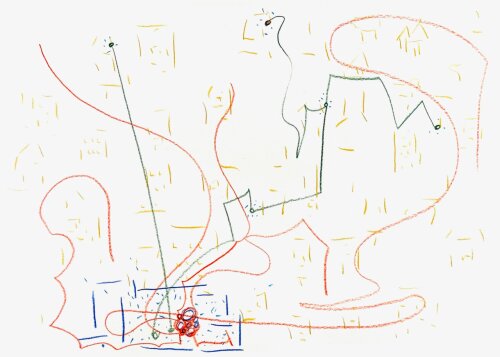
On May 28, prof. Patricia Aelbrecht is visiting us in Antwerp for a workshop on the social value of social infrastructure. Patricia Aelbrecht is an Associate Professor in Urban Design, Planning, and Intercultural Studies and Co-Founding Director of the Public Space Observatory Research Centre at Cardiff University's School of Geography and Planning.
This knowledge exchange workshop is part of a series hosted in collaboration with the Antwerp Urban Studies Institute, the Brussels Centre for Urban Studies and the Public Space Observatory Research Centre at Cardiff University, which will explore the evolving role of social infrastructure in contemporary urban environments.
Bringing together researchers, practitioners, and policymakers from different institutions, the session will facilitate knowledge exchange on how social infrastructure fosters community resilience, social cohesion, and urban transformation. The workshop will also serve as a platform to strengthen international research networks, explore joint funding opportunities, and identify future avenues for collaboration.
Programme
- 2.00 pm – 2.30 pm: Patricia Aelbrecht: ‘Advancing Social Infrastructure Understandings and Assessment Tools: Integrating Social Value, Social Cohesion, and Place Quality’
- 2.30 pm – 3.00 pm: Lisa De Roeck and Pascal Gielen (ARIA): ‘Subjective Mapping and the Role of Cultural Semi-Public Spaces’
- 3.00 pm – 3.15 pm: coffee break
- 3.15 pm – 3.45 pm: Elina Volodchenko and Stijn Oosterlynck (CRESC): ‘Governing community infrastructures amidst socio-demographic shifts and market pressures in Belgian cities’
- 3.45 pm – 4.45 pm: Discussion
Details
Wednesday 28 May 2025, 2-5 pm
UAntwerpen Stadscampus, room S.209 (ARIA attic)
Lange Sint-Annastraat 7
Abstracts
Learn more about the talks at the workshop:
Patricia Aelbrecht: ‘Advancing Social Infrastructure Understandings and Assessment Tools: Integrating Social Value, Social Cohesion, and Place Quality’
This contribution presents insights from the ESRC-funded project Understanding and Assessing the Social Value of Social Infrastructure, which aims to advance understanding and enhance the evaluation and implementation of social infrastructure (SI) to better support social cohesion and urban equity across London. Central to the project is the SOCIAL-US tool, developed by Cardiff University in collaboration with the Greater London Authority and the London Boroughs of Camden and Hackney. The tool integrates frameworks of social cohesion—belonging, inclusion, participation, and recognition—with place quality, creating a holistic methodology for assessing the social value of public spaces serving as SI, such as libraries, parks, and markets.
Lisa De Roeck and Pascal Gielen (ARIA): ‘Subjective Mapping and the Role of Cultural Semi-Public Spaces’
How can we visualize that which eludes articulation in words? In this presentation, we explore Subjective Mapping as a participatory and artistic research method for tracing personal experiences, perceptions, and emotional geographies. Using the Toneelhuis theatre in Antwerp as a pilot case study, we examine how cultural institutions can function as semi-public spaces—sites that mediate between the private and the public sphere—and how they can foster democratic culture, social engagement, and the transformation of conflict.
Drawing on visual material and examples from earlier Subjective Atlases (de Vet), the presentation introduces the principles and practices of Subjective Mapping as a means of making visible how individuals relate to cultural spaces: where and when such spaces spark energy, provoke reflection, or enable meaningful encounters. We reflect on how these visual narratives open up the affective and imaginative dimensions of public culture, offering new pathways for understanding shared spaces beyond discursive expression. This presentation forms part of a broader research project (2025–2026) conducted by Annelys de Vet, Lisa De Roeck, and Pascal Gielen at the University of Antwerp. The project investigates the democratic potential of cultural semi-public spaces and their significance not only within European urban contexts but also in regions marked by tension, polarization, or armed conflict. How might spaces like Toneelhuis become platforms for collective imagination, empathy, and dialogue—especially when conventional forms of communication falter or fail?
Elina Volodchenko and Stijn Oosterlynck (CRESC): ‘Governing community infrastructures amidst socio-demographic shifts and market pressures in Belgian cities’
Community infrastructures are crucial forms of social infrastructure for the democratic and social life of cities. These physical places, beyond the realm of home and work, provide a platform for practices of community building and civic engagement. Yet, as cities transform through socio-demographic transformations, market pressures on land and gentrification, these spaces and their governance arrangements face growing challenges. A wide range of actors, including civil society organizations, bottom-up citizen initiatives and city administrations, play a role in creating and sustaining them. Based on interviews with these key stakeholders in Antwerp, Brussels and Ghent, we show a proliferation of new community infrastructures as new social groups seek to appropriate spaces, while established organizations experiment with new users and uses. The combined pressures of rising land costs, financialization and an increasing demand for these spaces in densifying and diversifying cities result in a shift towards ‘creative mixed-use’, pushing citizens, private actors and urban policy makers to experiment with new forms of cooperation and governance.